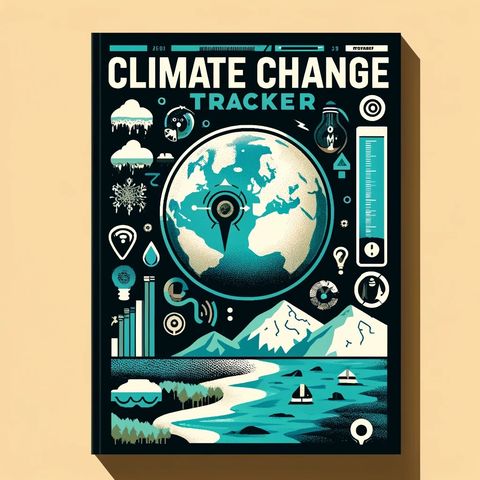"Unraveling the Gender-Climate Nexus: Empowering Women's Voices for a Sustainable Future."

Scarica e ascolta ovunque
Scarica i tuoi episodi preferiti e goditi l'ascolto, ovunque tu sia! Iscriviti o accedi ora per ascoltare offline.
"Unraveling the Gender-Climate Nexus: Empowering Women's Voices for a Sustainable Future."
Questa è una trascrizione generata automaticamente. Si prega di notare che non è garantita la completa accuratezza.
Descrizione
Climate change not only poses significant threats to the planet's ecosystems and economies, but it also has profound implications for gender equality. Women, who often bear the brunt of socio-economic...
mostra di piùAs the world grapples with escalating climate crises, from severe droughts and floods to catastrophic hurricanes, the UNFCC’s draft negotiating texts released ahead of the 2024 conference highlight this critical intersection of gender and climate change. These documents serve as a foundation for discussions, aiming to ensure that climate actions are both effective and equitable, addressing the needs of all genders.
Studies consistently show that climate change exacerbates existing gender inequalities. Women, particularly those in less developed countries, depend heavily on local natural resources for their livelihoods. These resources become scarce due to changing climatic conditions, thereby disproportionately affecting women’s ability to support themselves and their families. Additionally, women often have less access to decision-making processes and economic resources, which further limits their capacity to cope with environmental changes.
Recognizing these challenges, the UNFCC’s approach involves a dual strategy. On one front, it promotes women’s leadership and full participation in climate policy and action, which is not only fair but also essential for effective interventions. Women bring valuable perspectives and solutions to climate-relate discussions, given their firsthand experiences with issues at the nexus of climate change and domestic responsibilities.
On another front, the draft negotiating texts consider policies that specifically address and potentially mitigate the impacts of climate change on women. This includes enhancing women's access to technological and financial resources to better prepare for and respond to environmental changes. For example, providing women farmers with greater access to climate-resilient seeds and efficient water usage technologies can substantially improve their productivity and sustainability.
Furthermore, education and awareness campaigns are vital in empowering women and fostering greater gender parity in climate change adaptations. Educating women and girls in skills relevant to emerging green technologies and industries ensures they are equally empowered to seize new opportunities in a changing economic landscape.
The UNFCC documents underscore that successful climate action requires inclusive strategies that address both environmental and gender-related issues. As international representatives prepare to convene, the focus is clear: bridging gender gaps is indispensable in the global response to climate change, not only to ensure environmental sustainability but also to build resilient and inclusive communities prepared to face new climate realities. This approach is geared toward fostering a holistic and robust response to the global climate crisis, recognizing the essential role of women in conservation and sustainability efforts.
Informazioni
| Autore | QP-3 |
| Organizzazione | William Corbin |
| Sito | - |
| Tag |
Copyright 2024 - Spreaker Inc. an iHeartMedia Company

Commenti